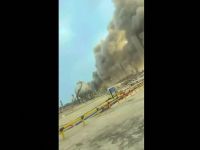Conflict in Yemen has led to millions of Yemenis leaving their homeland and seeking better lives elsewhere. They bring with them their cultures and traditions – and as anyone who has traveled in the Middle East will know – their food. From Egypt to Jordan to Saudi Arabia, you’d be hard pressed to find a large city without a popular Yemeni restaurant doing decent business. Some popular Yemeni dishes include Fahsa’ (a stew-like meal served boiling with bread), Saltah (a meat and egg stew and national dish of Yemen), and al-Mandi (a smoked, bright-red colored piece of chicken served with rice).
However, a recent study was conducted by a Saudi Arabian doctor thSat brings the latter dish – al-Mandi – into focus. Late last month, Dr. Khaled Hukmi, a surgeon fellow at the University Medical Center in Kuala Lampur, Malaysia, presented the findings of his study on throat cancers. According to Dr. Hukmi, there is a clear and present link between throat cancer and the popular Yemeni dish. Per the results of his study, the dish popular throughout the Middle East contains “nitrozamin”, a carcinogenic chemical.
While the debate about smoked foods being carcinogenic has persisted for some time now, Dr. Hukmi’s study claims to further strengthen the case. "The study shows that consumption of al-Mandi is a primary reason for developing cancer", he said in an interview with Saudi newspaper "Okaz".
Ironically, the Saudi study of the popular Yemeni food comes at a time when relations between the two nations are at a critical point. Saudi Arabia has been at war with Houthi rebels in Yemen since March 2015.







